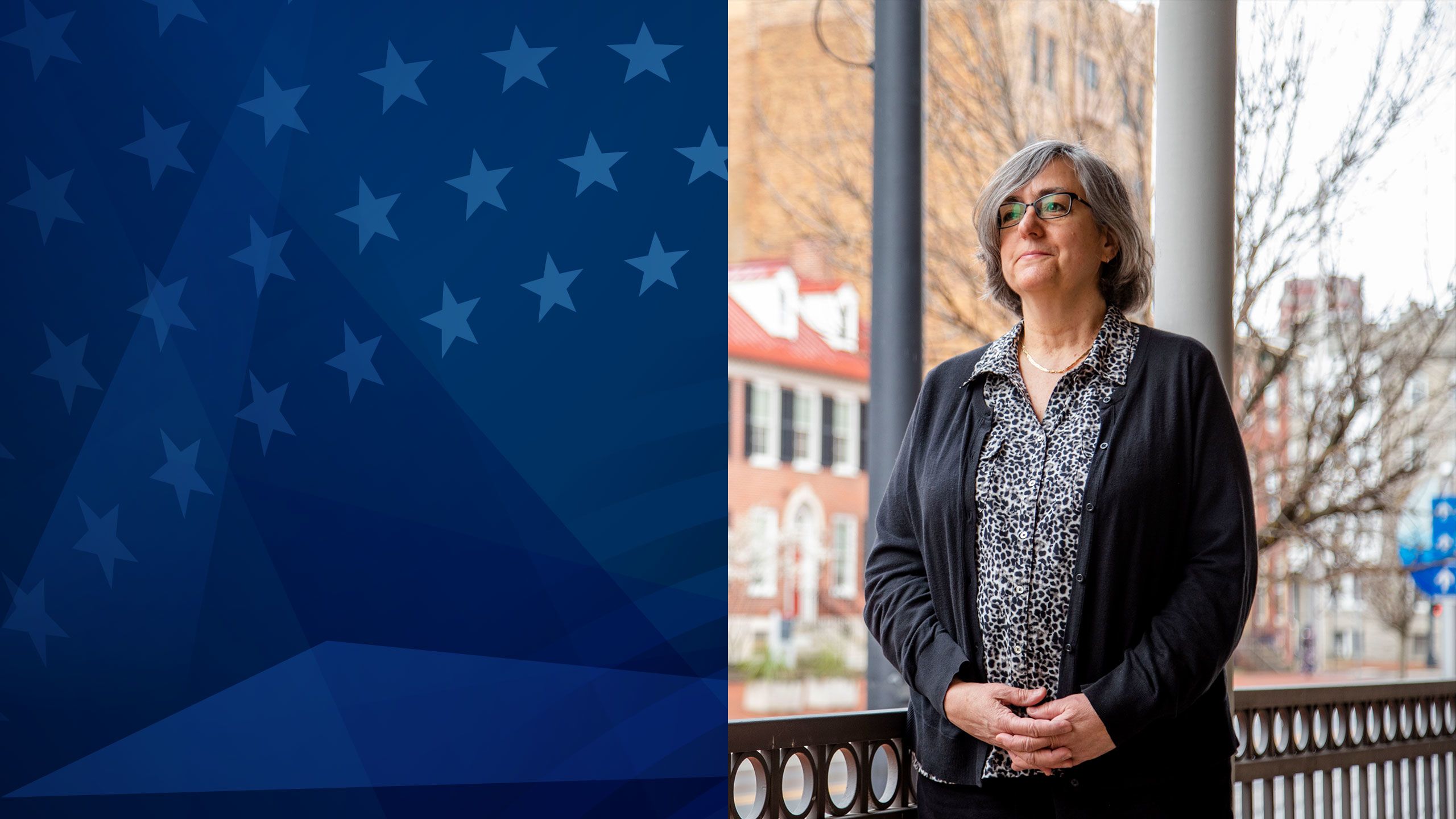On A Mission
to Promote Democracy
Rutgers University–Camden professor
Lorraine Minnite works to expand
and protect voting rights

Twenty years ago, a newly formed advocacy organization called Demos asked political scientist Lorraine Minnite what she could conclude about the existence of voter fraud in the U.S. based on current scholarship. The answer was simple: She could conclude nothing. That scholarship didn’t exist. “It’s hard to remember,” she says now, “how obscure the question would have been back then.”
In response to that question, Minnite embarked on what she thought would be a three-month study of voter fraud, at the time considered a relatively esoteric subject. That subject, however, became a central focus of her research and one of the most pressing, and divisive, issues of contemporary American politics.
Minnite, a professor of political science and an associate professor of public policy at Rutgers University–Camden, is widely known for her research on inequality, social and racial justice, political conflict, institutional change, and voting behavior and rights. In 2009, The New Press published her first book, Keeping Down the Black Vote: Race and the Demobilization of American Voters, coauthored with Frances Fox Piven and Margaret Groarke. Her second book, The Myth of Voter Fraud, was published by Cornell University Press in 2010.

Minnite’s goal—as an author, teacher, social scientist, and one of the country’s most prominent scholarly voices on the subject of voting rights—is, in her words, “to create a more just and equal society.” She distills that ambition into a deceptively simple statement: “I’m on a mission to promote democracy.”
She has worked to fulfill that mission in a variety of ways. In the early 2010s she served as research director for Project Vote, a nonprofit formed to support the 1993 National Voter Registration Act, which charged government agencies with encouraging voter registration but was often ignored by those agencies.
Teaching is another avenue toward the fulfillment of her goals, and she works to inspire in her students a passion for, and commitment to, democracy. She also serves as an expert witness, testifying in legal cases involving potential voter suppression. Over the past decade, she’s participated in a dozen such cases across the country—a process that hasn’t always been pleasant. In a 2005 case that challenged Connecticut’s voter registration deadline, for instance, the state’s assistant attorney general asked her, “Isn’t it true that your work is so inconsequential nobody cites you?”
Today, 17 years after that comment, neither her work nor her conclusions can be considered inconsequential. In her research, she has found little evidence of voter fraud, and she has outspokenly supported the idea that those who declare it widespread or an imminent threat often do so as part of a larger effort to suppress the turnout of large blocs of voters, including people of color, recent immigrants, and young people. “The populations targeted,” she says, “are always more vulnerable and less incorporated into American society.”
For instance, she notes that laws requiring photo IDs to vote are aimed at recently naturalized citizens and lower-income populations—including people of color—who may find the requirements confusing (in the case of non-English speakers), expensive (in terms of time taken off work, for example), or daunting. As proof that expanding access to the vote doesn’t, in fact, encourage fraud, she cites the 2020 presidential election, in which voting by mail was made significantly easier because of the pandemic. In spite of numerous challenges to the outcome of that election, she says, multiple assessments have proved it to be “one of the safest elections in anybody’s memory or knowledge.”

For Minnite, the fight to expand voting rights goes beyond elections. She equates it with “the larger struggle in the United States for the right to be treated fairly and equally, with dignity and respect.” Like all the great social protest movements in U.S. history—including the labor movement, the women’s movement, and the movement to promote Black freedom—the fight for voting rights has experienced forward surges followed by periods of retrenchment. The fact that we’re currently living through the latter, Minnite believes, shouldn’t be cause for despair but should, instead, motivate supporters to persevere. Specifically, she says, “we need to continue to pressure state legislatures to simplify the rules to expand access. And on a larger level, we have to reform the Constitution,” which doesn’t explicitly enshrine voting as an essential right.
For Minnite, the goals of the right to vote and of democracy itself are one and the same: “more equality in the society we live in, so that everybody can develop into the person they could be.” She admits that efforts to achieve those goals are likely to be ongoing for some time—which makes it all the more important that proponents remain engaged. “The fight,” she says, “is all there is”—a statement that could also stand as a summary of her life’s work.

